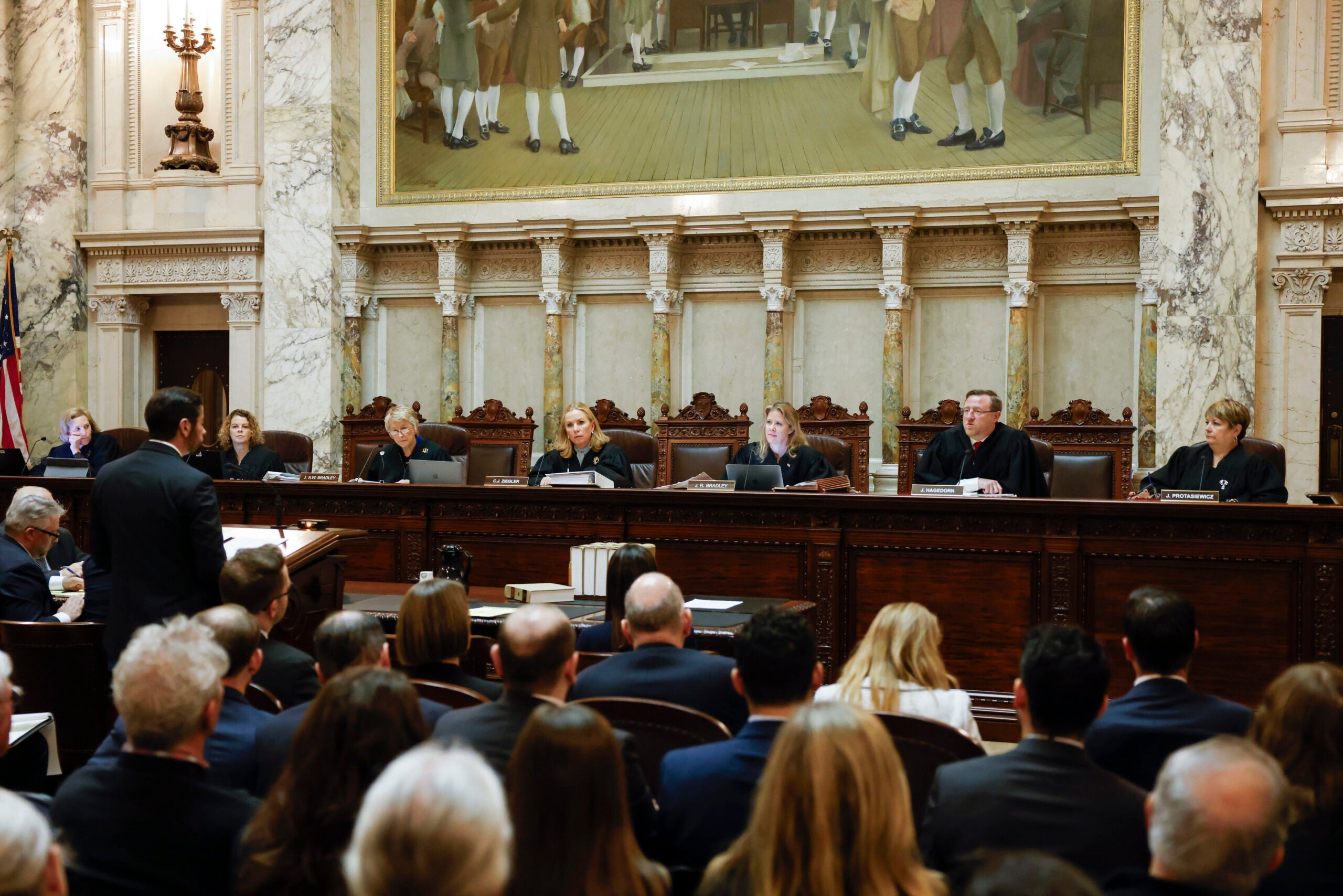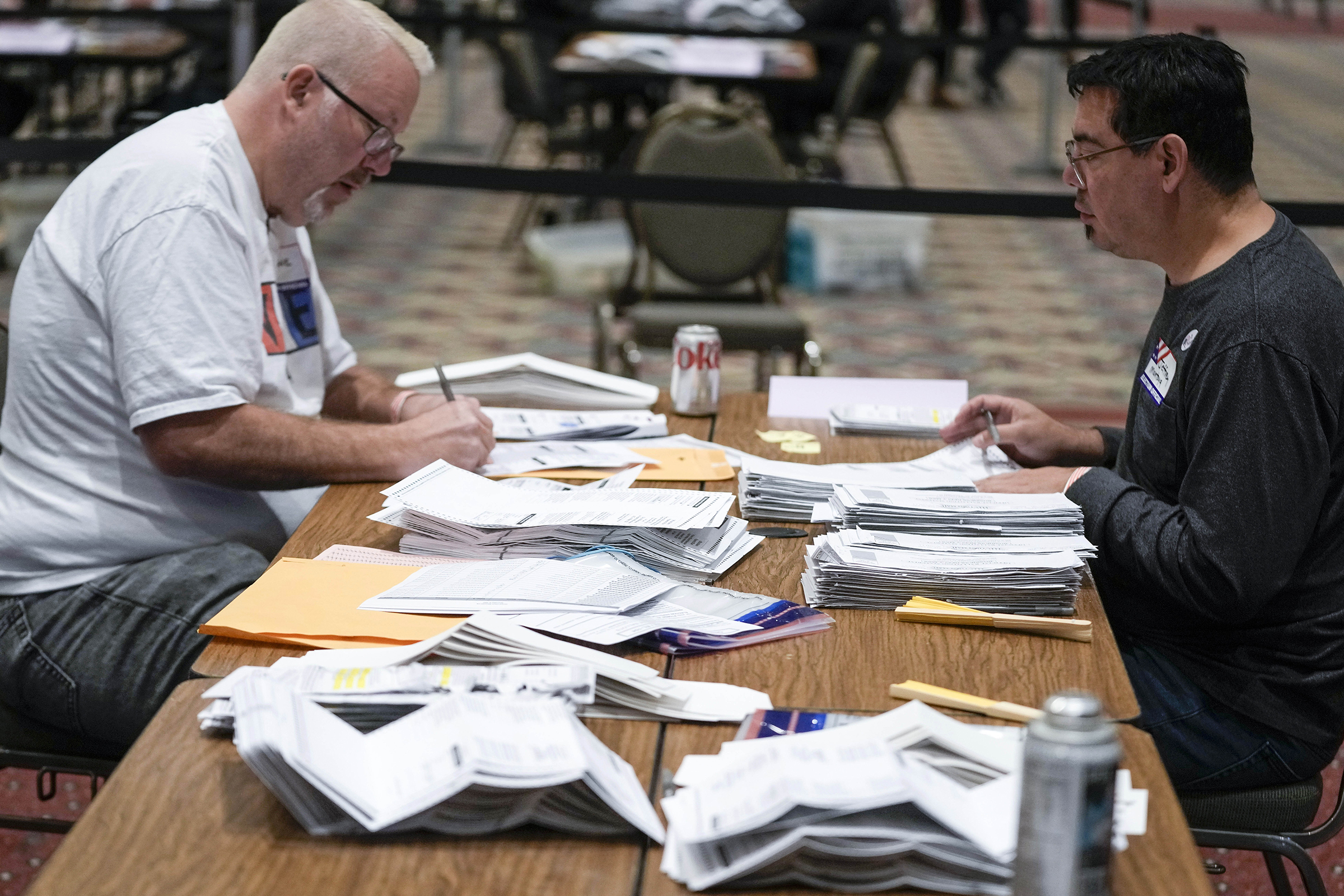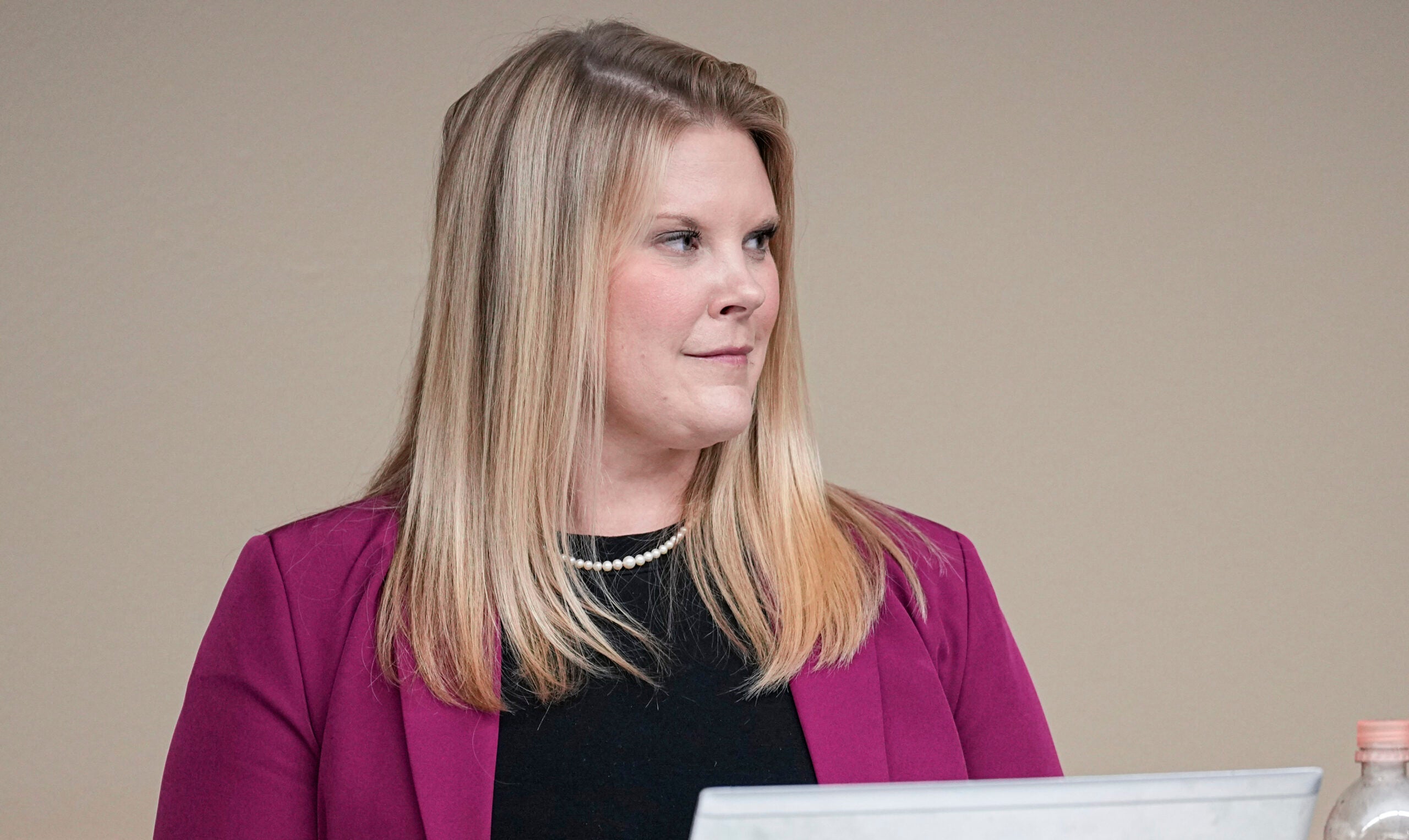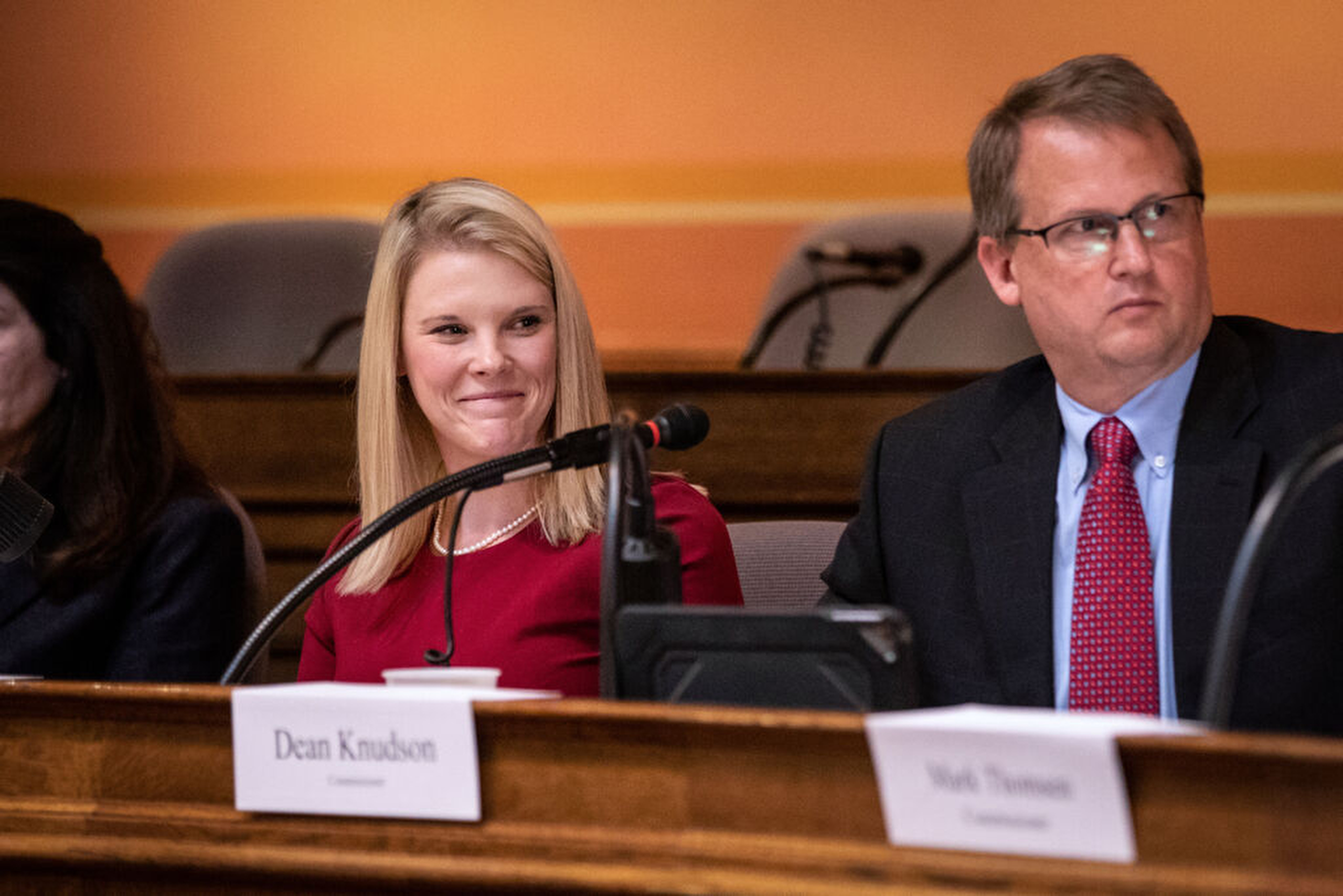Two years ago, a conservative majority on the Wisconsin Supreme Court ruled that a Republican appointee could remain in his job past his term. On Monday, the issue was back before the court, where a justice on new liberal majority called it a “a case of careful what you wish for.”
The case before the Supreme Court is, at its heart, a political battle over whether Wisconsin Elections Commission Administrator Meagan Wolfe should be allowed to keep her job despite her appointment ending more than a year ago. The dispute has been driven by conservatives angry with how Wolfe oversaw the 2020 election, when COVID-19 changed the way clerks handled voting and President-elect Donald Trump cast doubts about his loss to President Joe Biden.
But the current lawsuit, filed last year by Democratic Attorney General Josh Kaul after the Republican-controlled Wisconsin Senate voted to fire Wolfe, represents a new test for a 2022 ruling from the court. In that ruling, conservative justices found Republican political appointee Fred Prehn could stay on the state’s Natural Resources Board past his term because the Senate hadn’t held a vote to confirm a replacement appointed by Democratic Gov. Tony Evers.
Stay informed on the latest news
Sign up for WPR’s email newsletter.
During oral arguments Monday, Republican attorney Misha Tseytlin argued this case is different because state law requires the elections commission’s three Democratic and three Republican members to vote on a new administrator every four years. Liberal Justice Janet Protasiewicz was skeptical about Republicans’ intent.
“Didn’t the Legislature just come before the Supreme Court a few years ago and argue that the expiration of a term virtually means nothing?” Protasiewicz said. “How come you’re back here now asking us to say that this time, the expiration of a term actually means something. What’s the difference?”
Tseytlin said one main difference is the Prehn decision was about a “constitutional standoff” between Evers and Republican lawmakers. Now, he said there are three “bureaucrats who have no constitutional status, holding the chief election officer appointment hostage, away from the people.”
Tseytlin is referring to a deadlocked vote last year, in which the commission’s three Democratic members cited the court’s Prehn decision and chose to abstain from the vote rather than reappoint Wolfe. That came days after Senate Majority Leader, Devin LeMahieu, R-Oostburg, said he didn’t think there would be enough votes in his caucus to confirm Wolfe, which signaled the Senate was poised to fire her.
At the time, Democratic Commissioner Mark Thomsen said while all members have confidence in Wolfe, “absent a promise from the Senate to confirm Meagan Wolfe, I don’t think we should play this game.”
Tseytlin said with Thomsen’s comment, it’s fair “to surmise” that the commission’s Democratic members will never send Wolfe’s appointment to the Senate for confirmation.
“This is the state’s chief election officer,” Tseytlin said. “They’re telling this court that the state’s chief election officer will be forever away from the people. That is not a sustainable result in a democracy.”
Appearing frustrated by Tseytlin’s argument, liberal Justice Jill Karofsky said Republicans were essentially making the opposite argument when asking the court to let Prehn keep his job.
“This is a case of careful what you wish for, isn’t it?” Karofsky said. “And now the Legislature is here two years later, demanding that Megan Wolfe must vacate her position. It seems to me, this has little to do with what the law actually says, and far more to do with who is in these positions. If the Legislature favors someone, they stay. If they don’t, they must go. Does that sound like the rule of law to you?”
Representing the elections commission, Assistant Attorney General Charlotte Gibson told the court the lawsuit over Wolfe’s appointment is really about defending Wolfe’s ability to legally “holdover” in her appointment per the court’s previous Prehn ruling. She said state law “imposes no consequence for not making an appointment.”
Conservative Justice Rebecca Bradley asked whether that interpretation effectively erases parts of the law that created Wolfe’s position.
“Doesn’t your construction of the statute just read the four-year term language completely out of the statute?” Bradley asked.
Gibson disagreed, and said state law allows the commission’s voting members to remove an administrator at any time.
“If an administrator is underperforming, the commission is right there on the ground with her,” Gibson said. “They’re going to see that, and regardless of whether they’re Republicans or Democrats, they’re going to coalesce and bring in an administrator who can do the job.”
Gibson also disputed Tseytlin’s argument that the people of Wisconsin will never have a say in who Wisconsin’s top elections official will be. The people elect legislators, she noted, and and those lawmakers chose the commissioners who appointed Wolfe unanimously in 2019.
Commissioners, Gibson said, have continued to voice confidence in Wolfe despite their deadlocked vote in September.
Wisconsin Public Radio, © Copyright 2025, Board of Regents of the University of Wisconsin System and Wisconsin Educational Communications Board.





